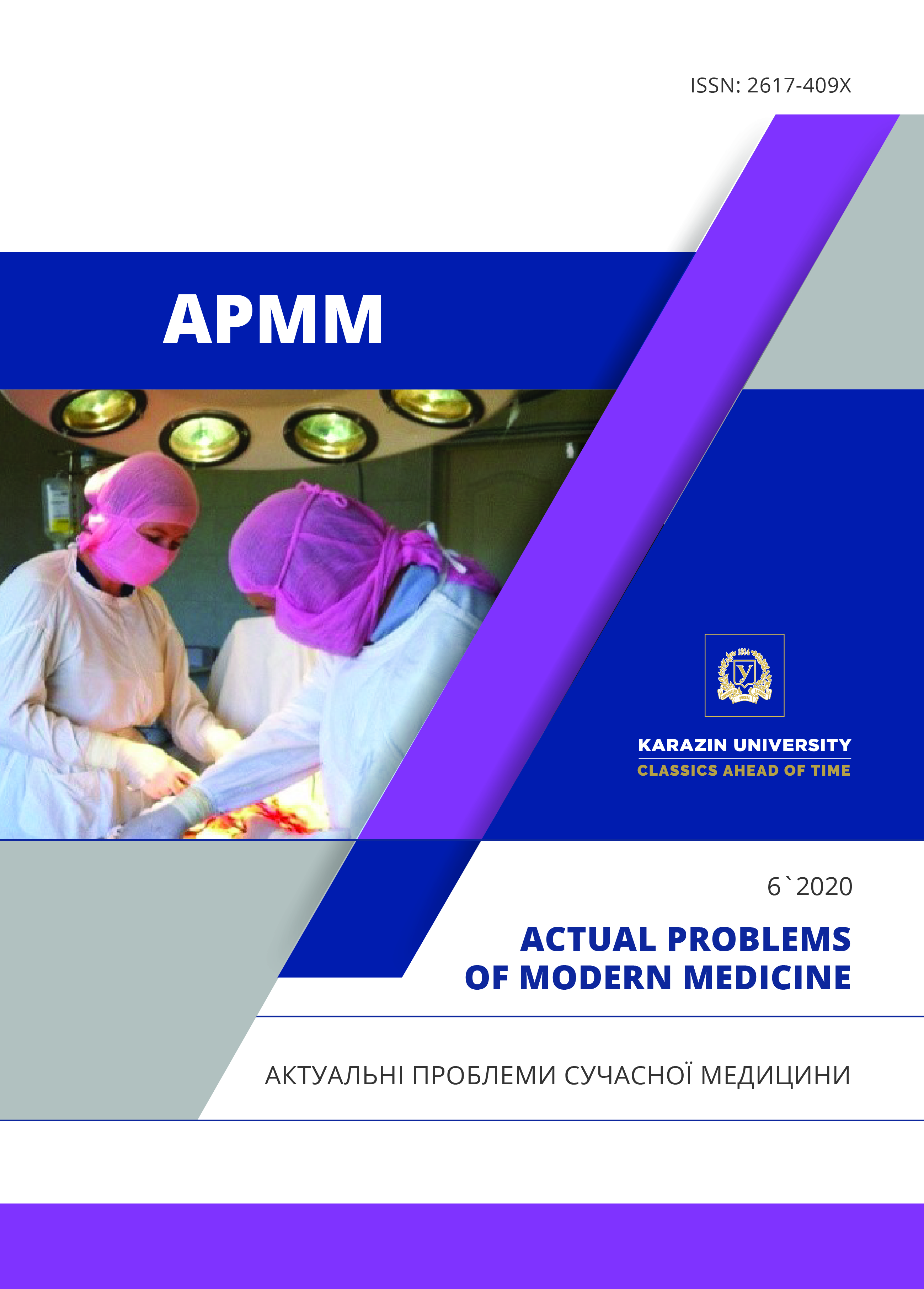Синдром подразненого кишечника з закрепами: питання патогенезу, діагностики та лікування
Анотація
Питання, пов'язані з діагностикою та лікуванням синдрому подразненого кишечника є одним із центральних місць в гастроентерології, в зв'язку з тим, що в останні роки відзначається значне зростання захворюваності даними синдромом, його тривалий рецидивний, часто довічний перебіг, що призводить до зниження працездатності пацієнтів, незважаючи на доброякісний характер, і значних витрат системи охорони здоров'я. Синдром подразненого кишечника, незважаючи на його функціональну природу, зустрічається досить часто - від 14 до 50% дорослого населення за даними популяційних епідеміологічних досліджень, а співвідношення жінок і чоловіків - від 2:1 до 4:1. У структурі гастроентерологічної патології на це захворювання припадає 40-70% всіх випадків звернень по лікарську допомогу. В роботі досліджено рівень вазоконстриктору ендотеліну-1 і вазодилятатору оксиду азоту у хворих на синдром подразненого кишечника з запорами. Встановлено, що у таких пацієнтів має місце виражена ендотеліальна дисфункція, яка проявляється в підвищенні рівня ендотеліну-1 (р˂0,01), зниженні рівня оксиду азоту (р˂0,01). Отримані дані свідчать про роль порушення функції судинного ендотелію в патогенезі синдрому подразненого кишечника з запорами. Виявлена зворотня кореляційна залежність між вмістом ендотеліну - 1 та оксиду азоту (р˂0,01), що свідчить про підвищення активності вазоконстрікторних механізмів з одночасним зниженням факторів вазодилятации. Відзначено ефективність комплексної терапії в групі пацієнтів, у яких в складі комплексної терапії застосовувалася фолієва кислота і цинктерал в поліпшенні клінічної картини захворювання (повне купірування диспептического синдрому і значне зменшення по виразності больового, констіпаціонного і астенічного синдромів), відновленні функції ендотелію судин (достовірне зниження рівня ендотеліну-1 і підвищення рівня оксиду азоту) в порівнянні з групою хворих, в лікуванні яких застосовувалася тільки базисна терапія.
Завантаження
Посилання
Zvyagintseva TD, Gridneva SV. Novyye kontseptsii razvitiya sindroma razdrazhennogo kishechnika i podkhody k lecheniyu. Novosti meditsiny i farmatsii. (Gastroyenterologíya). 2016;(577):8-12 (In Russ.).
Zvyagintseva TD, Gridneva SV. Sindrom razdrazhennogo kishechnika: sovremennyye predstavleniya i novyye vozmozhnosti korrektsii. Skhídnoêvropeys'kiy zhurnal vnutríshn'oí̈ ta símeynoí̈ meditsini. 2018;(2):4-9 (In Russ.).
Fadeyenko GD, Gridnev AYe. Sindrom razdrazhennogo kishechnika i kishechnyy mikrobiom. Ot patogeneticheskikh mekhanizmov k lecheniyu. Novini meditsini ta farmatsíí̈. Zhurnal «Gastroenterologiya». 2018;52(4):8-9 (In Russ.).
Sheptulin AA, Vize-Khripunova MA. Novoye v etiologii i patogeneze sindroma razdrazhennogo kishechnika. Klinicheskaya meditsina. 2016; 94(2):92-96. (In Russ.). https://doi.org/10.18821/0023-2149-2016-94-2-92-96
Yankovskiy DS, Shirobokov VP, Dyment GS. Mikrobiom. 2017.640 р. (In Russ.). https://doi.org/10.11603/1681-2727.2018.3.9427
Cibor D, Domagala-Rodacka R et al. Endothelial dysfunction in inflammatory bowel diseases: Pathogenesis, assessment and implications. World J Gastroenterol. 2016 Jan 21;22(3):1067–1077. https://doi.org/10.3748/wjg.v22.i3.1067
Frederik C. Enevoldsen, Jayashree Sahana et al. Endothelin Receptor Antagonists: Status Quo and Future Perspectives for Targeted Therapy. J Clin Med. 2020 Mar;9(3):824. https://doi.org/10.3390/jcm9030824
Houde M, Desbiens L, D'Orléans-Juste P. Endothelin-1: Biosynthesis, Signaling and Vasoreactivity. Adv. Pharmacol. 2016;77:143-75. https://doi.org/10.1016/bs.apha.2016.05.002
Lankhorst S, Danser AH et al. Endothelin-1 and antiangiogenesis. Am. J. Physiol. Regul. Integr. Comp. Physiol. 2016 Feb 01;310(3):230-4. https://doi.org/10.1152/ajpregu.00373.2015
Han W, Guo C et al. Role of endothelin and nitric oxide in the pathogenesis of irritable bowel syndrome. Chinese Journal of Gastroenterology. 2002; 7(6):342-344
Zhao Y, Vanhoutte PM. et al. Vascular nitric oxide: Beyond eNOS. J. Pharmacol. Sci. 2015 Oct;129(2):83-94. https://doi.org/10.1016/j.jphs.2015.09.002.
Muscara M, Wallace J. Therapeutic potential of nitric oxide donors and inhibitors. Am. Journal Physiol. 1999;276:G1313-1316 https://doi.org/10.1152/ajpgi.1999.276.6.G1313
Sal'nikova YeV. Potrebnost' cheloveka v tsinke i yego istochniki. Mikroelementy v meditsine. 2016;17(4):11-15 (In Russ.).
Liping Huang, Victoria J. Drake et al. Zinc. Advances in Nutrition. 2015;6 (2):224–226 https://doi.org/10.3945/an.114.006874
Takafumi Hara, Taka-aki Takeda et al. Physiological roles of zinc transporters: molecular and genetic importance in zinc homeostasis. The Journal of Physiological Sciences. 2017;(67):283–301 https://doi.org/10.1007/s12576-017-0521-4.
Sung Ryul Lee. Critical Role of Zinc as Either an Antioxidant or a Prooxidant in Cellular Systems. Oxidative medicine and cellular longevity. 2018;(15):1-11 https://doi.org/10.1155/2018/9156285
Sugimachi M, Kiyohara T, Murayama T. et al. Endogenous endothelin in a rat model of acute colonic mucosal injury. Gastroenterology and Hepatology. 2000;15(10):1125-1131 https://doi.org/10.1046/j.1440-1746.2000.02311.x




